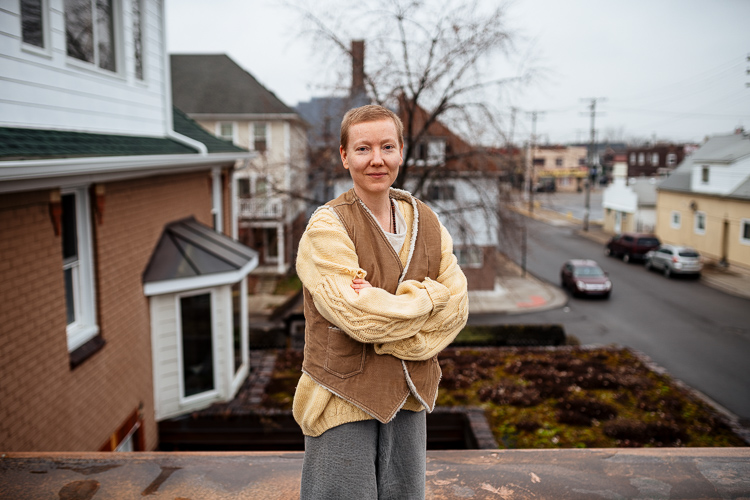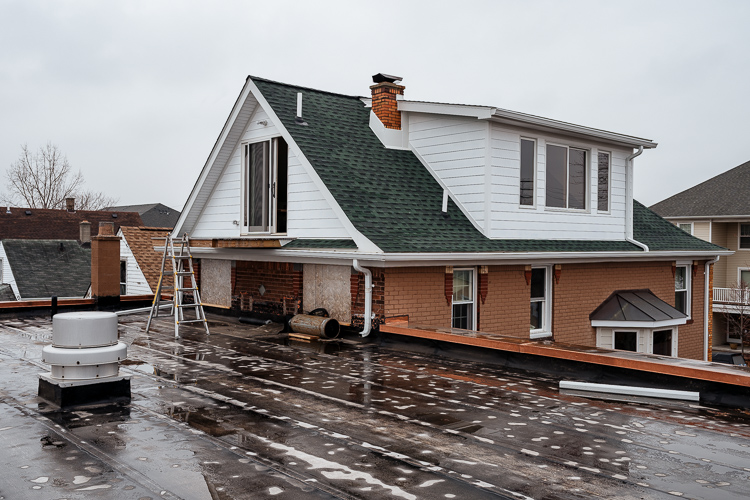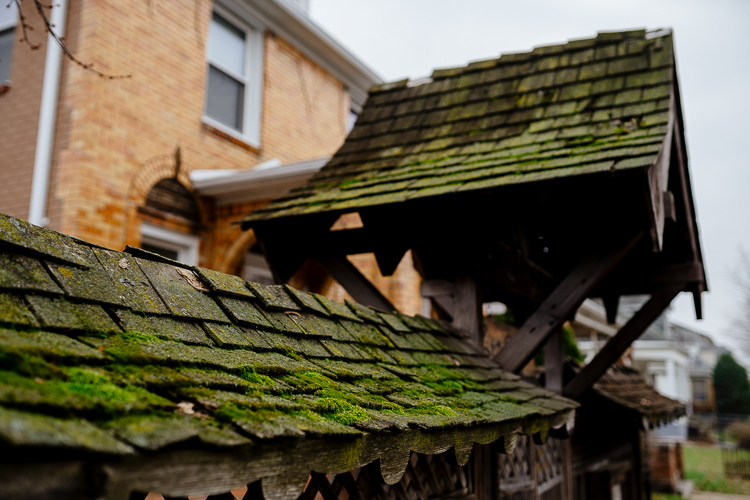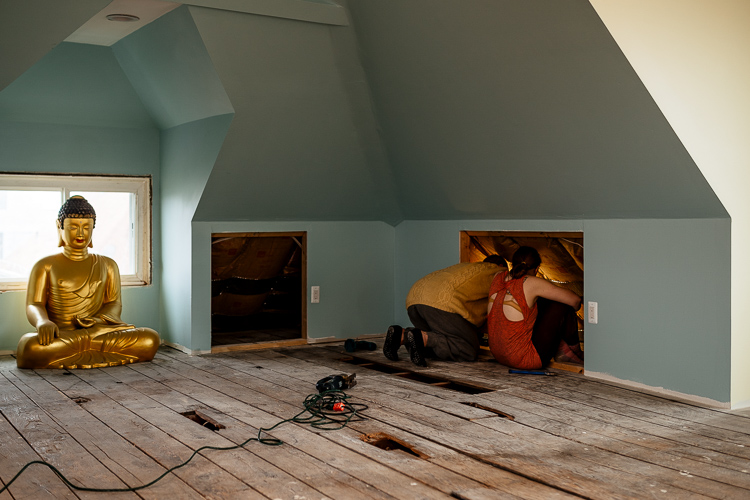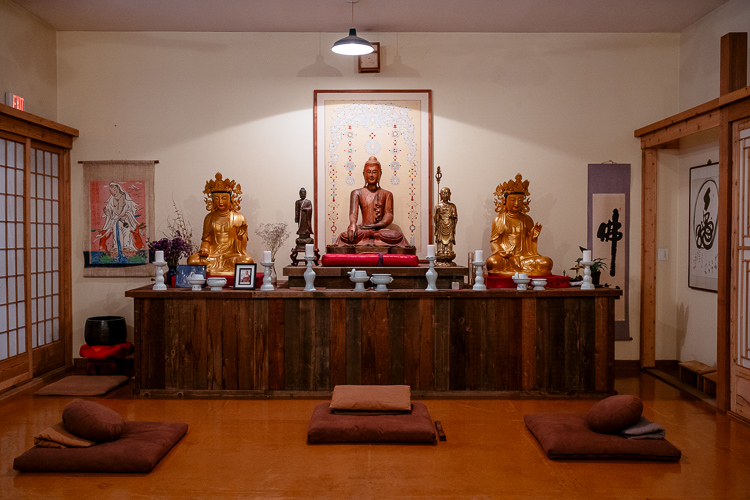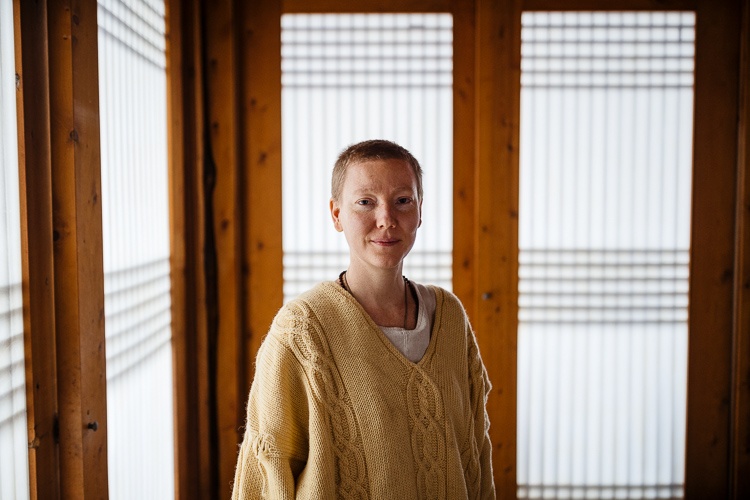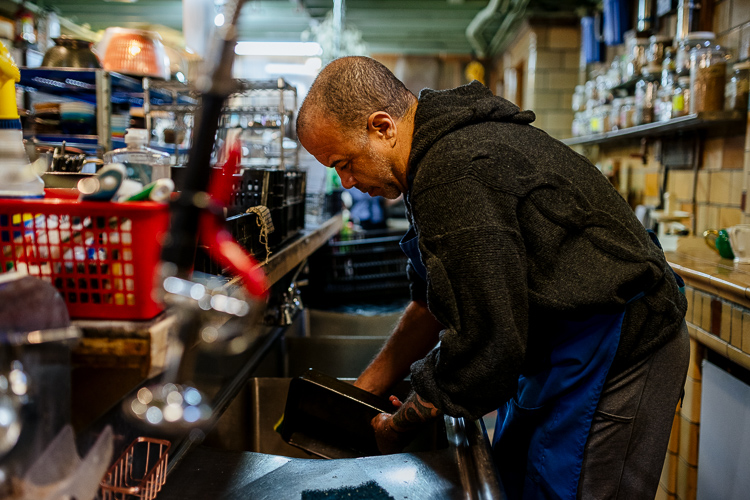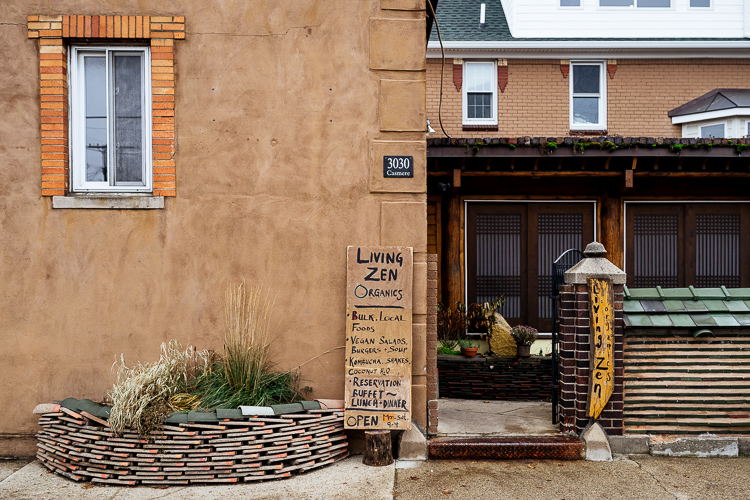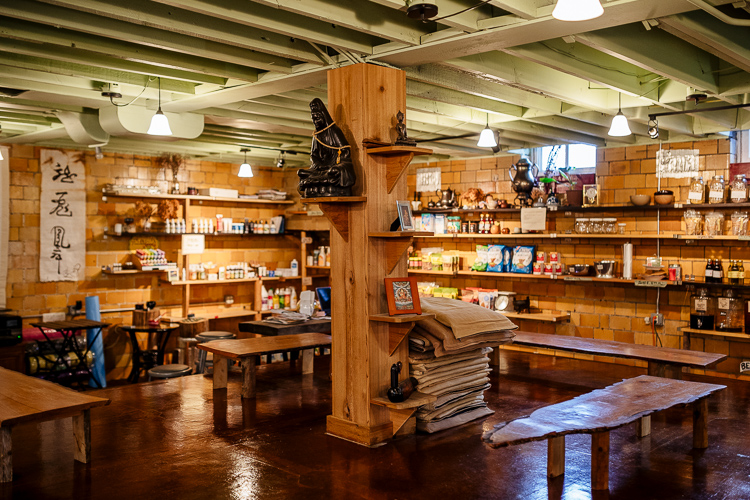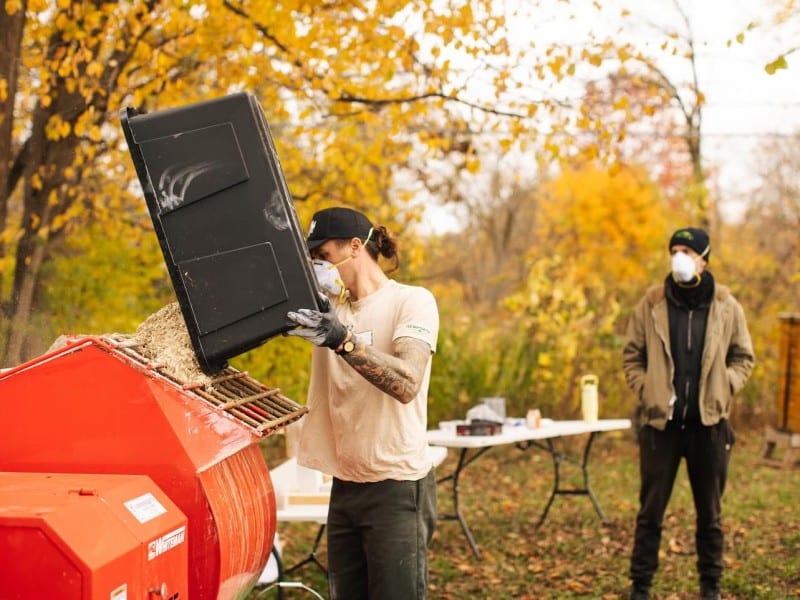After “epic” flood, Detroit Zen Center looks to be a model for stormwater management
After a 2014 flood destroyed the center's food business, it decided to install a green roof. In addition to absorbing 10,000 gallons of rainwater, the roof will act as a model for an area that has had chronic issues with stormwater management.
Picture a Zen monastery and what do you see? Monks and apprentices meditating and performing their daily duties quietly. A silence that’s interrupted only by the sounds of nature and the gong to indicate the changing day.
Though located in Hamtramck and not an isolated mountain range, the Detroit Zen Center may seem similar to this picture on the outside. But that hasn’t exactly been its history.
Some challenges, mostly with the center’s building, would take the patience of a monk to withstand. The biggest of which was a massive flood that forced the center to partially close and nearly to move.
But instead of relocating, the Detroit Zen Center reaffirmed its commitment to Detroit and Hamtramck.
And to decrease the likelihood of a disaster like that happening again, the center will be installing a green roof — essentially a layer of living plant matter — on its main building and have launched a crowdfunding campaign to help pay for it. The final renovation will result in a roof that can absorb approximately 10,000 gallons of rainwater, be a place for residents and guests to enjoy tea from the center’s cafe, and also act as a model for an area that has had chronic issues with stormwater management.
Living Zen
The Detroit Zen Center was founded in 1990 by Hwalson Sunim, a Detroiter who studied to be a monk for years before returning to start the training center. In 1994, the center found a permanent home on Casmere Street in Hamtramck, which houses several Zen apprentices and hosts meditations and workshops.
After running the center for nearly 20 years, Hwalson recruited Myungju Hillary to be the new director in 2012. Before studying for 11 years at California and Korean monestories, she regularly meditated at the Zen center as a teenager.
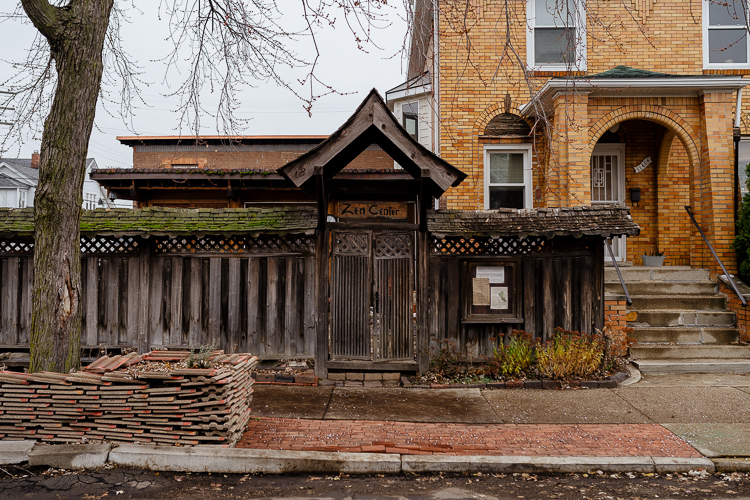
When Hillary became director, the Detroit Zen Center carried debt. She and the abbot discussed an on-site community business as both a way for resident students to support themselves and provide a needed service to the community, as well as to generate non-donation-based revenue streams. They looked around the country for models, but didn’t find one that suited their work in Detroit.
“Most Zen centers around country were doing one of two things: Locating in an affluent neighborhood or college town and making money off teaching, workshops, or donations,” Hillary says. “Neither of those things resonated with the abbot or myself.”
While it doesn’t shun donations, the Zen center doesn’t want Buddhist teachings to be main means of financial support either.
Utilizing Hillary’s knowledge of vegetarian cooking, they landed on the idea of starting an organic food business. Today, Living Zen Organics products, like its kale chips, can be found in over 15 groceries and cafes around Metro Detroit. It also operates a snack and bulk food store in the lower-level of the center, which was formerly a speakeasy, and serves buffet-style meals made from scratch with mostly local produce.
“The beauty of a food business is lots of people can do it — you don’t have to be highly skilled,” Hillary says. “But you still don’t make a whole lot of money selling kale chips, especially when you use biodegradable packaging and organic ingredients. If we were paying ourselves, we’d be losing money.”
But Hillary adds that there is a lot of room for growth and it’s often difficult to keep up with demand. In addition to the monks and students, the business has hired three local employees who make a living wage and receive benefits.
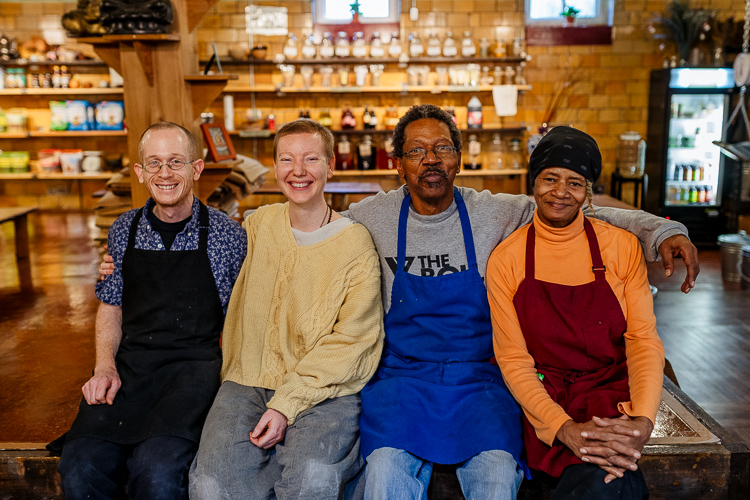
But just as Living Zen Organics was starting to support the center and generate reliable cash flow, disaster struck.
In 2014, the Detroit Zen Center was hit with what Hillary calls an “epic” flood. It started raining at 5 p.m. and by 2 a.m. there was four feet of storm-sewage water in the lower-level. The flood destroyed everything, from the food bins and power tools to the walk-in refrigerator and $13,000 dehydrator room.
“The business was literally washed away in a night,” Hillary says.
She estimates the total cost of abating and and replacing the damage at over $100,000. And that number doesn’t include lost revenue from temporarily shutting down Living Zen Organics.
Several people on the Detroit Zen Center’s board wanted to move to a place where there would be wealthier donors and less building insecurity. But the center ultimately doubled down on Hamtramck and haven’t looked back since.
A living roof
The center eventually managed to get enough money from its insurance company to cover most of the cost and has done major renovations to prevent future flooding. Even though the center’s buildings are now protected, with storms all but assured to worsen, they couldn’t help but worry about the fate of their neighbors and neighborhood.
The green roof the center will be installing is the final piece a larger project it’s has undertaken to manage its stormwater — and encourage the city of Hamtramck to do the same. In 2009, the center had a smaller green roof installed on the corridor connecting the meditation hall to the residence. It also manages a rain and rock garden.
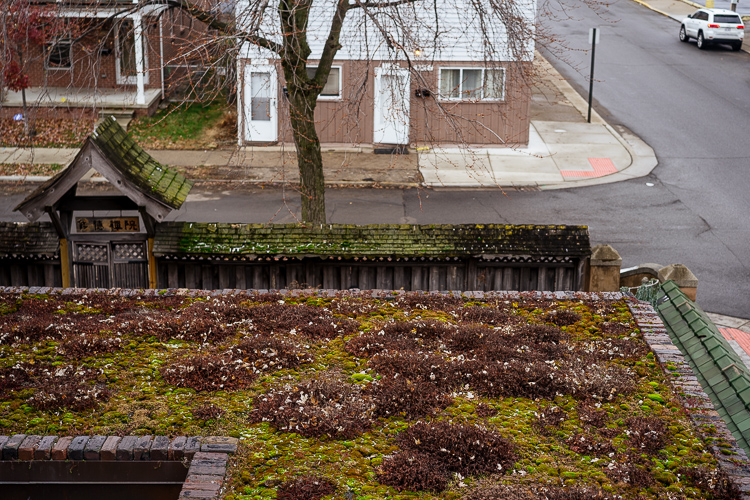
One of the best green roof professionals in the United States will be installing the new one. Clayton Rugh, director of XeroFlor North America, helped install the 454,000-square-foot green roof on Ford Motor Company’s Truck Plant at the Rouge Center, which set the Guinness Book of World Records for “largest living roof” in 2004.
Rugh says that green roofs confer a number of benefits. There is of course stormwater management, which not only reduces runoff but also pollutants that might be carried into a drain system or building. They help cool the building and encourage habitat growth through pollinating insects and flowering plants.
Green roofs are also much cleaner — and not just with the final product. “You minimize all that demolition, waste, landfill material, and construction activity that can be harmful,” says Rugh. “As well as the bottom line for the business owner.”
That’s because green roofs last up to 50 years; much longer than a traditional roof.
The whole renovation fits in well with Zen philosophy. “If there’s one word I associate with Zen Buddhism, it would be ‘sustainability,'” Hillary says. “The approach of Zen historically has been that your life is your art. Have minimal ties to financial and political systems, except to support yourself in the spirit of self-reliance.”
The Detroit Zen Center’s roof will be part of a renovation that includes a tea room and bed-and-breakfast-style rental room. Guests will be able to purchase tea, some of which will be grown in planters on the roof perimeter, and enjoy it on the roof.
They also hope the renovation will be a model for the rest of the city, which has had its share of difficulties with stormwater management. The center will give tours and in general be more open to the public.
“Every day, all of outside spaces will be open from sunrise to sunset for tea service and a light menu,” Hillary says. “We’ll use as much of the space as possible for the community, while still protecting the interior of the space.
“We feel we’re stewarding this corner of world, so why not open it up to everybody. And those that want to come further in will be able to do so as well.”
The Detroit Zen Center’s Patronicity crowdfunding campaign to help pay for its green roof renovation ends Dec. 17. You can support it here.
